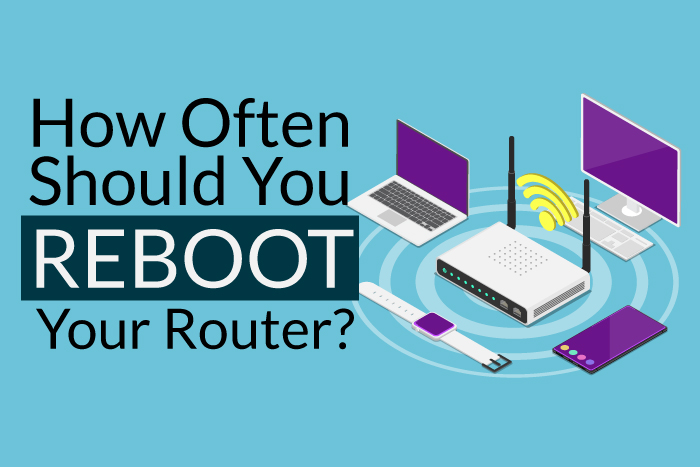How Often Should You Reboot Your Network Router?
Whether your Internet is running slower than usual or you’re just trying to keep it from getting that way, rebooting your router is the first and easiest step you can take.
How often should a network router be rebooted? Furthermore, what benefits does a router reboot really give you? Rebooting your router is essential. Just keep reading, and we’ll break down everything you need to know.
In this article you will find out...
How Often Should You Reboot Your Router?
The truth is that there are no recommended intervals to reset your router. Most companies recommend rebooting your router at least every couple of months. If you’re ever wondering whether or not you could benefit from a router reboot, just go ahead and do it.
There aren’t any negative results from rebooting your router, and it provides quite a few positive benefits. It’s free, easy, and you can’t do it too often.
Reboot your router at least every three months, but if you feel like you would benefit by doing it more often, go ahead!
Why Should You Reboot Your Router?
While there is no official recommendation on how often you should reboot your router, large router manufacturers like Linksys and NETGEAR all recognize that restarting your router has many positive results.
From resetting connections to repairing minor problems, there are tons of benefits!
Faster Connections
A faster connection is the most immediate result of a router reboot. If you’re ever finding that your internet speeds are slowing down, a simple reboot might be all that you need to get everything running quickly again.
Rebooting your router repairs connections and clears out a ton of piled up stored data, and it can even help you maintain good connections with all of your devices. This is the primary reason you should reboot your router periodically, but it’s not the only one.
Fix Minor Problems
The joke runs that if you’re having a problem, the first thing IT is going to ask you is if you’ve unplugged it and plugged it back in. While it might be frustrating when they ask, the reason they do is simple, and it can resolve many problems.
Of course, you don’t truly need to unplug it and plug it back in; what you need to do is reboot it. If you’re having connection issues or are facing inconsistent speeds, a router reboot might be precisely what you need to get things running like new.
Prevent Hacking
While rebooting your router won’t prevent significant malware attacks from taking place, they can kick some of the malware out of the system. Rebooting your router won’t fix everything, but anything that makes it even a little harder on the hacker is worth the few extra steps.
If you suspect that someone has hacked your router, we recommend a full factory reset of your router – but even this might not fix all of your problems. If you’ve tried both a reboot and a reset and still have issues, consult an IT expert to get your device repaired.
Rebooting vs. Resetting Your Router
Rebooting your router is the easiest thing that you can do to try and resolve any issues that you might be having. It’s quick, easy, and doesn’t have any drawbacks. However, if you’re still having problems after a simple reboot, the next thing to try is factory resetting your router.
You’ll need to look up the specific instructions for your router make and model on how to reset it, but it can usually fix whatever problems that you’re having. However, you will need to reconfigure some settings to get everything working correctly again, and you might even need to contact your internet provider.

